Refine search
Actions for selected content:
23990 results in Ancient history
Introduction to Part II
- from Part II - Classical Historiography
-
- Book:
- Moral History from Herodotus to Diodorus Siculus
- Published by:
- Edinburgh University Press
- Published online:
- 23 September 2017
- Print publication:
- 20 June 2016, pp 171-171
-
- Chapter
- Export citation
Part II - Classical Historiography
-
- Book:
- Moral History from Herodotus to Diodorus Siculus
- Published by:
- Edinburgh University Press
- Published online:
- 23 September 2017
- Print publication:
- 20 June 2016, pp 169-170
-
- Chapter
- Export citation
3 - Fragmentary Hellenistic Historiography
- from Part I - Hellenistic Historiography
-
- Book:
- Moral History from Herodotus to Diodorus Siculus
- Published by:
- Edinburgh University Press
- Published online:
- 23 September 2017
- Print publication:
- 20 June 2016, pp 124-168
-
- Chapter
- Export citation
1 - Polybius
- from Part I - Hellenistic Historiography
-
- Book:
- Moral History from Herodotus to Diodorus Siculus
- Published by:
- Edinburgh University Press
- Published online:
- 23 September 2017
- Print publication:
- 20 June 2016, pp 23-72
-
- Chapter
- Export citation
5 - Thucydides
- from Part II - Classical Historiography
-
- Book:
- Moral History from Herodotus to Diodorus Siculus
- Published by:
- Edinburgh University Press
- Published online:
- 23 September 2017
- Print publication:
- 20 June 2016, pp 194-215
-
- Chapter
- Export citation
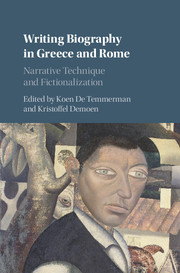
Writing Biography in Greece and Rome
- Narrative Technique and Fictionalization
-
- Published online:
- 05 June 2016
- Print publication:
- 10 May 2016
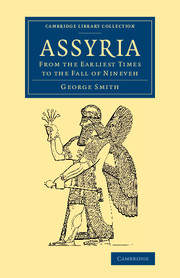
Assyria
- From the Earliest Times to the Fall of Nineveh
-
- Published online:
- 05 June 2016
- Print publication:
- 25 September 2014
- First published in:
- 1875
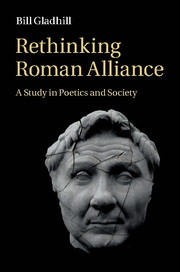
Rethinking Roman Alliance
- A Study in Poetics and Society
-
- Published online:
- 05 June 2016
- Print publication:
- 31 May 2016
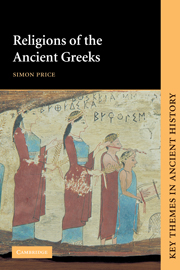
Religions of the Ancient Greeks
-
- Published online:
- 05 June 2016
- Print publication:
- 28 June 1999
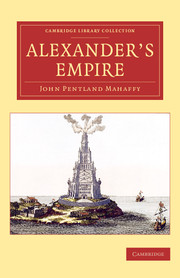
Alexander's Empire
-
- Published online:
- 05 June 2016
- Print publication:
- 02 October 2014
- First published in:
- 1887
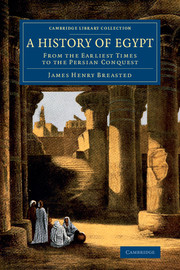
A History of Egypt
- From the Earliest Times to the Persian Conquest
-
- Published online:
- 05 June 2016
- Print publication:
- 19 February 2016
- First published in:
- 1906
Index
-
- Book:
- Rethinking Roman Alliance
- Published online:
- 05 June 2016
- Print publication:
- 31 May 2016, pp 214-216
-
- Chapter
- Export citation
Acknowledgements
-
- Book:
- Rethinking Roman Alliance
- Published online:
- 05 June 2016
- Print publication:
- 31 May 2016, pp ix-x
-
- Chapter
- Export citation
Chapter 5 - Ritual alliance in Lucan’s Bellum Civile
-
- Book:
- Rethinking Roman Alliance
- Published online:
- 05 June 2016
- Print publication:
- 31 May 2016, pp 168-199
-
- Chapter
- Export citation
Bibliography
-
- Book:
- Rethinking Roman Alliance
- Published online:
- 05 June 2016
- Print publication:
- 31 May 2016, pp 203-213
-
- Chapter
- Export citation
Introduction
-
- Book:
- Rethinking Roman Alliance
- Published online:
- 05 June 2016
- Print publication:
- 31 May 2016, pp 1-16
-
- Chapter
- Export citation
Chapter 4 - Ritual alliance inVergil’s Aeneid
-
- Book:
- Rethinking Roman Alliance
- Published online:
- 05 June 2016
- Print publication:
- 31 May 2016, pp 119-167
-
- Chapter
- Export citation
Contents
-
- Book:
- Rethinking Roman Alliance
- Published online:
- 05 June 2016
- Print publication:
- 31 May 2016, pp vii-viii
-
- Chapter
- Export citation
Chapter 1 - A prolegomenon to ritual alliance
-
- Book:
- Rethinking Roman Alliance
- Published online:
- 05 June 2016
- Print publication:
- 31 May 2016, pp 17-68
-
- Chapter
- Export citation
Dedication
-
- Book:
- Rethinking Roman Alliance
- Published online:
- 05 June 2016
- Print publication:
- 31 May 2016, pp v-vi
-
- Chapter
- Export citation
